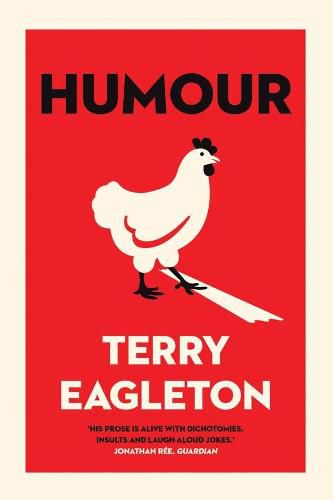Readings Newsletter
Become a Readings Member to make your shopping experience even easier.
Sign in or sign up for free!
You’re not far away from qualifying for FREE standard shipping within Australia
You’ve qualified for FREE standard shipping within Australia
The cart is loading…






A compelling guide to the fundamental place of humour and comedy within Western culture-by one of its greatest exponents
Written by an acknowledged master of comedy, this study reflects on the nature of humour and the functions it serves. Why do we laugh? What are we to make of the sheer variety of laughter, from braying and cackling to sniggering and chortling? Is humour subversive, or can it defuse dissent? Can we define wit?
Packed with illuminating ideas and a good many excellent jokes, the book critically examines various well-known theories of humour, including the idea that it springs from incongruity and the view that it reflects a mildly sadistic form of superiority to others. Drawing on a wide range of literary and philosophical sources, Terry Eagleton moves from Aristotle and Aquinas to Hobbes, Freud, and Bakhtin, looking in particular at the psychoanalytical mechanisms underlying humour and its social and political evolution over the centuries.
$9.00 standard shipping within Australia
FREE standard shipping within Australia for orders over $100.00
Express & International shipping calculated at checkout
A compelling guide to the fundamental place of humour and comedy within Western culture-by one of its greatest exponents
Written by an acknowledged master of comedy, this study reflects on the nature of humour and the functions it serves. Why do we laugh? What are we to make of the sheer variety of laughter, from braying and cackling to sniggering and chortling? Is humour subversive, or can it defuse dissent? Can we define wit?
Packed with illuminating ideas and a good many excellent jokes, the book critically examines various well-known theories of humour, including the idea that it springs from incongruity and the view that it reflects a mildly sadistic form of superiority to others. Drawing on a wide range of literary and philosophical sources, Terry Eagleton moves from Aristotle and Aquinas to Hobbes, Freud, and Bakhtin, looking in particular at the psychoanalytical mechanisms underlying humour and its social and political evolution over the centuries.